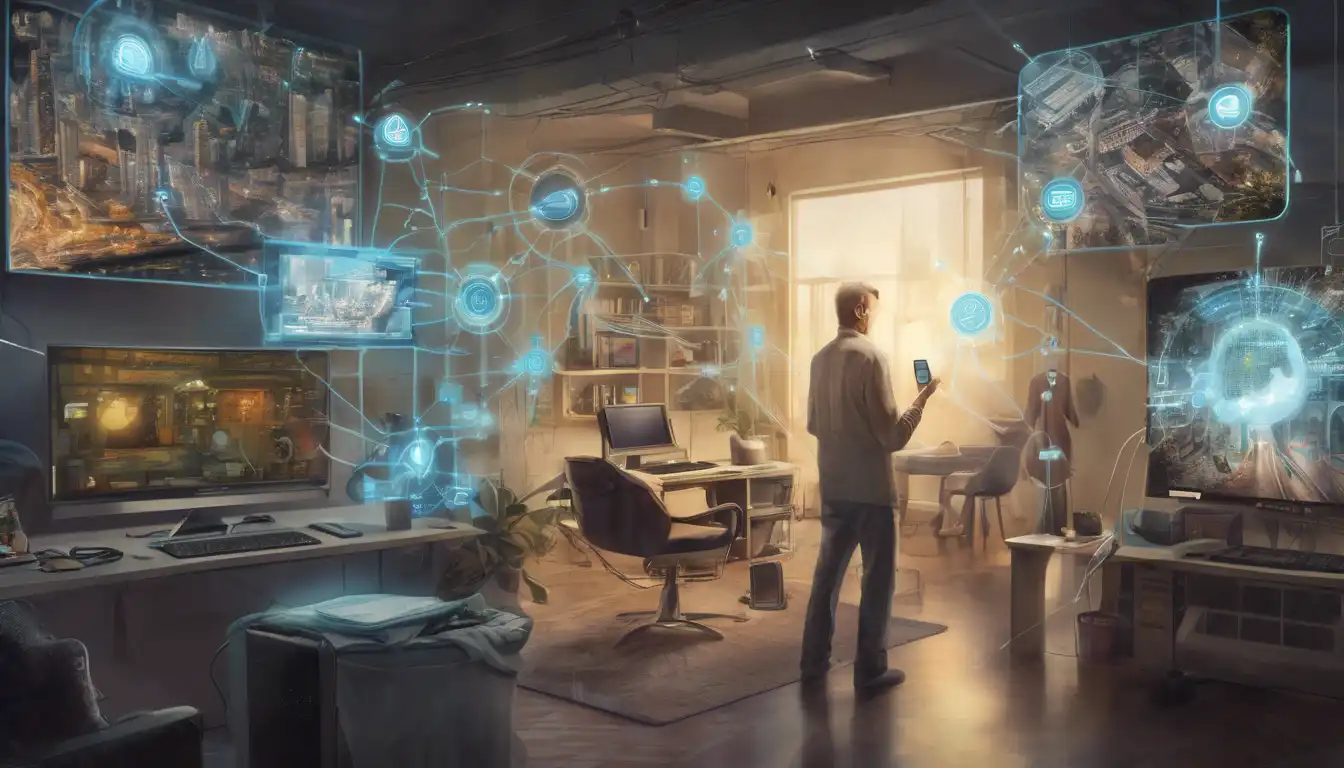Introduction to the Internet of Things (IoT)
The Internet of Things (IoT) represents a revolutionary shift in how we interact with technology. By connecting everyday devices to the internet, IoT enables them to send and receive data, making our lives more convenient, efficient, and secure. From smart homes to wearable health monitors, IoT is transforming daily living in unprecedented ways.
Enhancing Home Comfort and Security
One of the most visible impacts of IoT is in the realm of smart homes. Devices like smart thermostats, lights, and security cameras can be controlled remotely via smartphones, offering unparalleled convenience and energy efficiency. For instance, a smart thermostat learns your schedule and adjusts the temperature accordingly, reducing energy consumption and costs.
Key Benefits of Smart Home Devices:
- Remote control of home appliances
- Energy savings through intelligent automation
- Enhanced security with real-time alerts
Revolutionizing Healthcare with Wearable Technology
Wearable IoT devices are making significant strides in healthcare by monitoring vital signs such as heart rate, blood pressure, and sleep patterns. These devices provide valuable data that can help in early detection of potential health issues, promoting preventive care and reducing hospital visits.
Examples of Healthcare IoT Devices:
- Fitness trackers that monitor physical activity
- Smartwatches with ECG and blood oxygen monitoring
- Glucose monitors for diabetes management
Improving Urban Living with Smart Cities
IoT is also at the heart of smart city initiatives, where it is used to optimize traffic flow, reduce energy usage, and improve public safety. Sensors and connected devices collect data that city planners use to make informed decisions, leading to more sustainable and livable urban environments.
Smart City Applications:
- Intelligent traffic management systems
- Smart street lighting that adjusts based on activity
- Waste management systems that optimize collection routes
Boosting Industrial Efficiency
In the industrial sector, IoT is driving the fourth industrial revolution, or Industry 4.0. By connecting machinery and equipment to the internet, businesses can monitor performance in real-time, predict maintenance needs, and reduce downtime, significantly boosting productivity and efficiency.
Industrial IoT (IIoT) Benefits:
- Predictive maintenance to prevent equipment failures
- Real-time monitoring of production processes
- Enhanced supply chain management
Conclusion: The Future of IoT
As IoT technology continues to evolve, its potential to improve lives is boundless. With advancements in AI and machine learning, IoT devices will become even more intelligent, offering personalized experiences and further enhancing efficiency across various sectors. The Internet of Things is not just about connecting devices; it's about creating a smarter, more connected world.
